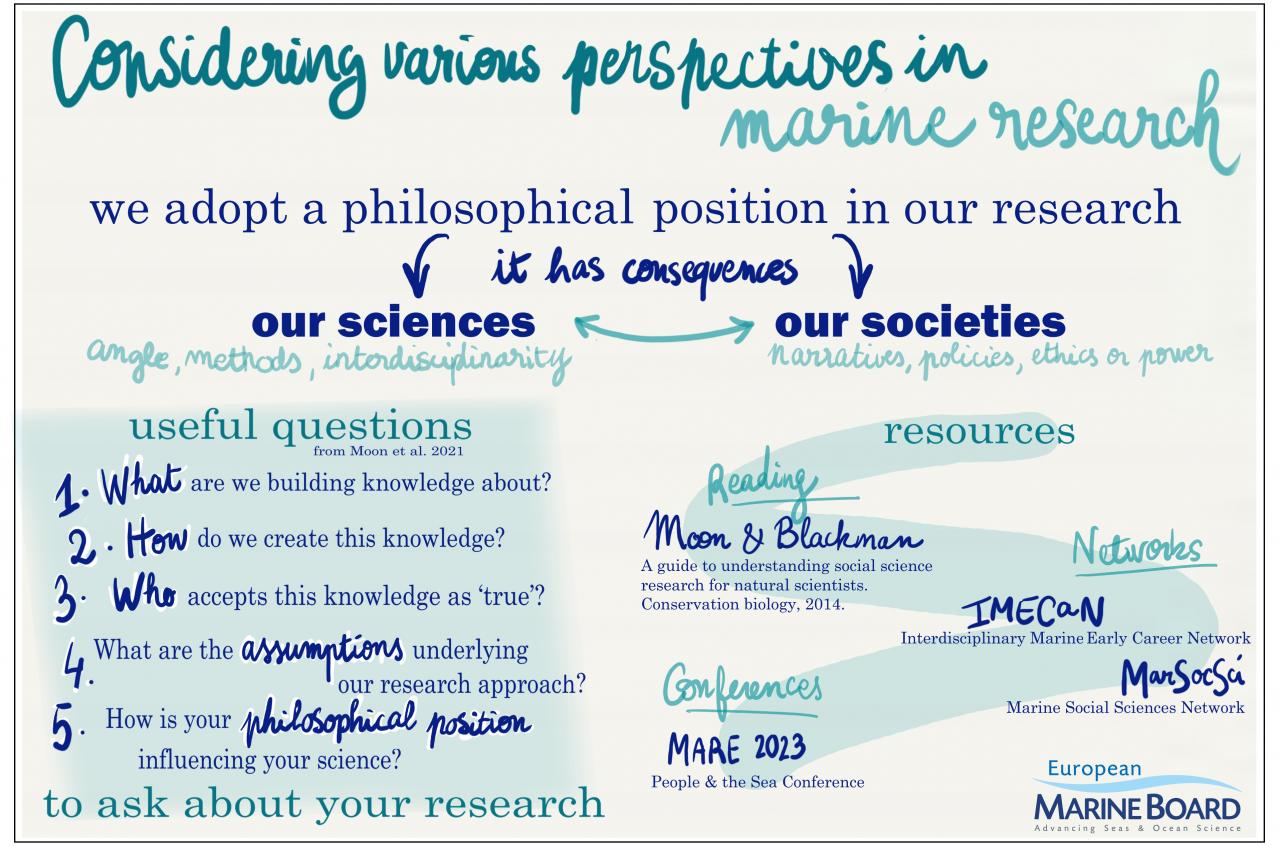This workshop, part of the YOUMARES 2022 conference, was an invitation to explore the philosophical perspective we adopt in our research and work for the oceans. The reasons why you engage in your research will condition the how, with whom, from what point of view. We discussed how the notions of ontology (understanding what is real) and epistemology (understanding how we produce knowledge) can help us building our research questions, working with different actors or different disciplines (see Moon & Backman, 2014). Keynote speaker Professor Margherita Pieraccini (University of Bristol, UK) gave examples on how to study these ontologies and epistemologies in the context of marine policies, with the example of marine protected areas in England. During this talk, we explored how the consideration of multiple knowledges (which is itself a philosophical position) and the active (thick) participation of knowledge holders is important to implement fair and efficient conservation policies. Margherita recommended to first describe our own philosophical position (examples in Moon & Backman 2014) and we can think about where we fit in terms of epistemology(ies) and ontology(ies). You can rewatch Margherita’s presentation here.
Panelists Diana Lorena Rico-Vélez (Kuehne Logistics University, Germany), Letícia Weber Oliveira (Haedes, Belgium) and Emily Wagdin (University of Exeter, UK) shared their perspectives on these aspects. Together with the participants, they had already thought of considering others' perspectives in their work, to try to move beyond our own perception and understand that of others, including for example engineers or fishers. We shared ways to communicate and agree, how to adapt our words, our ways of presenting our goal, or even our body language, finding strategies to find common ground, and eventually a fair compromise.

Resources:
Networks
Conferences
- Marine social sciences MARE 2023 People & the Sea Conference
References
- Five questions Adapted from Moon et al. (2021). Five questions to understand epistemology and its influence on integrative marine research. Frontiers in Marine Science, 8, 574158.
- Moon and Blackman (2014). A Guide to Understanding Social Science Research for Natural Scientists. Conservation Biology, 28(5), 1167–1177.